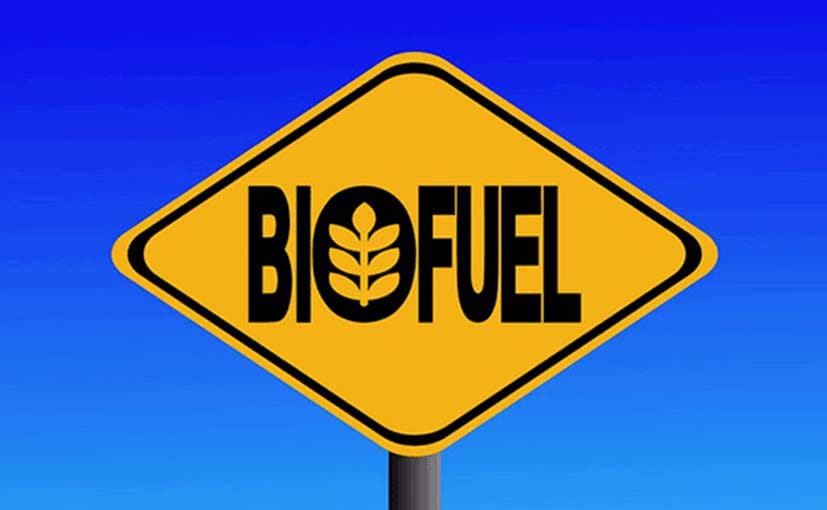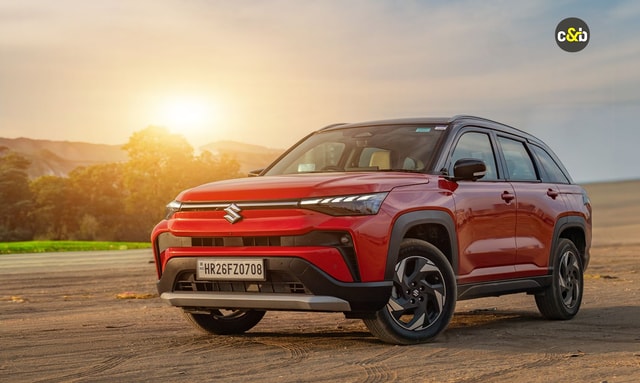Ethanol Biofuel: How It Compares to Fossil Fuel

The transport Minister of India, Nitin Gadkari, emphasized the need for the automotive industry to adopt and manufacture more flexi-fuel vehicles that run on alternative fuel types like ethanol and bio-diesel to help reduce air pollution. The government, in Januray 2016, is gearing up to put in play a policy that will allow flexi-fuel powered vehicles to be manufactured in India. Flexi-fuel vehicles are powered by engines that are capable of running on pure ethanol as well as petrol. Some commonly asked questions regarding the use of ethanol as an alternate fuel source have been answered below.
What is ethanol?
Ethanol or ethyl alcohol is the purest form of alcohol which is made by fermenting plants such as sugarcane, bamboo and corn. It contains a substantially larger amount of oxygen which helps in combustion and results in more complete burning of fuel. It is non-toxic, easily biodegradable and is water soluble.
How is ethanol used as a replacement to traditional fossil fuel?
Ethanol can either be used as a direct fuel source in its 100 per cent pure form, or else it is mixed with petrol in differing ratios to improve the fuel's octane rating. There are several different types ethanol blends available which use different ratios in the mix; for example E85 consists of 85 per cent ethanol and 15 per cent gasoline whereas E10 contains 10 per cent ethanol and 90 per cent gasoline. India achieved a 2.5 per cent ethanol petrol blend percentage last year. Abhinash Verma, Director General of the Indian Sugar Mills Association (ISMA), stated,"We supplied 66 crore litres of ethanol last year. This year, we expect to achieve 5 per cent ethanol blending. We have already contracted for 104 crore litres."
Although ethanol doesn't require any new engine technology, it can be harmful to an engine if the unit is not compatible with the fuel type. Hence, before using ethanol or an ethanol blend in your car, always make sure that the engine is capable of burning the fuel efficiently.
What are the advantages of using ethanol as a fuel?
The reason ethanol is referred to as the 'next big thing' in terms of an alternate fuel source is because of the advantages it holds over petroleum derived fossil fuel. Despite the widespread controversy surrounding its positive attributes viz its negative ones, ethanol or ethanol blended fuel has been scientifically proven to release significantly less harmful emissions like carbon monoxide and carbon dioxide, thereby garnering a tag of being a 'Green Fuel'.
Besides reduction in emissions, ethanol is also renewable unlike fossil fuel. As long as crops can be grown, ethanol production is always a possibility. The setting up of an ethanol industry can result in improvement of local economies, provide a lucrative business source for farmers, and can reduce a country's dependence on imported crude oil.
How does ethanol affect performance?
Chemically, an equivalent amount of ethanol contains about two thirds the energy found in petrol. As a result, engines powered by ethanol will use around 30 per cent more fuel to deliver the same or similar amount of power. However if an engine is tuned to operate specifically on ethanol, the higher octane rating can be used to deliver a heftier punch in terms of power and torque. In the case of ethanol blended fuel, lower the percentage of ethanol, less significant is the reduction in fuel efficiency.
What are its disadvantages?
The large scale production of ethanol has 2 basic cons; the vast amount of land and food resources required to generate it and the colossal amount of power that its generation consumes. Ethanol is created by using produce that could otherwise be used to feed many people. The amount of farm land required to generate such large quantities, is often stated to be grossly wasteful especially considering the next big disadvantage of mass biofuel production- the amount of power consumed. Reports suggest that the generation of biofuel could require up to 30 per cent more energy than what ethanol itself is capable of generating.
However to put things into a more localised perspective, Nitin Gadkari has been advocating the production of ethanol from sugar fields rather than corn fields which are more commonly used world over. This is a comparatively more sensible choice due to the fact that corn is an essential source of food for millions of people and using it to produce biofuel has, in the past, resulted in soaring corn prices and lack of availability of corn as a food. Gadkari stated," There is no point in manufacturing sugar. This is the time the sector should focus on increasing ethanol production instead of sugar for survival."
"With Brazil continuing to make surplus sugar, there is very little chance of any sharp uptick in global sugar prices in the near future," Gadkari said. Brazil has already implemented the use of ethanol and ethanol blended fuel due to the country's strong sugar-making capabilities. As a result, the time and money required to be spent on testing the viability of ethanol on a large scale in India, is minimal.
Latest News
 Jaiveer Mehra | Feb 27, 2026New Tata Tiago EV Spied Testing On Indian Roads: Enhanced Range Incoming?Launched in India in 2022, the Tiago EV received a notable update last year, adding in newer features and some styling tweaks.3 mins read
Jaiveer Mehra | Feb 27, 2026New Tata Tiago EV Spied Testing On Indian Roads: Enhanced Range Incoming?Launched in India in 2022, the Tiago EV received a notable update last year, adding in newer features and some styling tweaks.3 mins read car&bike Team | Feb 27, 2026VLF Mobster 135 Price Hiked As Introductory Offer EndsThe Mobster 135 is now priced at Rs 1.37 lakh (ex-showroom), which marks an increase of Rs 7,000.2 mins read
car&bike Team | Feb 27, 2026VLF Mobster 135 Price Hiked As Introductory Offer EndsThe Mobster 135 is now priced at Rs 1.37 lakh (ex-showroom), which marks an increase of Rs 7,000.2 mins read car&bike Team | Feb 27, 2026New MG plug-in hybrid SUV Spied testing In India AgainMG’s next new launch in the Indian market could be the Wuling Starlight 560-based model that has been spied on test for the second time in India.2 mins read
car&bike Team | Feb 27, 2026New MG plug-in hybrid SUV Spied testing In India AgainMG’s next new launch in the Indian market could be the Wuling Starlight 560-based model that has been spied on test for the second time in India.2 mins read Jaiveer Mehra | Feb 27, 2026Mini Cooper S Victory Edition Bookings Open In IndiaSpecial edition of the Mini hatchback commemorates the brand’s 1965 Monte Carlo Rally victory.1 min read
Jaiveer Mehra | Feb 27, 2026Mini Cooper S Victory Edition Bookings Open In IndiaSpecial edition of the Mini hatchback commemorates the brand’s 1965 Monte Carlo Rally victory.1 min read Girish Karkera | Feb 27, 2026BMW Chairman Oliver Zipse Named 2026 World Car Person of the YearThe award makes him part of a select industry leaders to make the cut.1 min read
Girish Karkera | Feb 27, 2026BMW Chairman Oliver Zipse Named 2026 World Car Person of the YearThe award makes him part of a select industry leaders to make the cut.1 min read car&bike Team | Feb 26, 2026Triumph 350 cc Range India Launch By April 2026Bajaj had confirmed the development of the 350 cc Triumph models back in November, following the GST rate reforms.1 min read
car&bike Team | Feb 26, 2026Triumph 350 cc Range India Launch By April 2026Bajaj had confirmed the development of the 350 cc Triumph models back in November, following the GST rate reforms.1 min read
 Preetam Bora | Feb 24, 2026Hero Destini 110 Review: Simplicity, RefinedThe Hero Destini 110 is a no-nonsense commuter that is simple, comfortable and above all, fuel efficient. In 2026, when buyers are spoilt for choice, is it good enough to consider?1 min read
Preetam Bora | Feb 24, 2026Hero Destini 110 Review: Simplicity, RefinedThe Hero Destini 110 is a no-nonsense commuter that is simple, comfortable and above all, fuel efficient. In 2026, when buyers are spoilt for choice, is it good enough to consider?1 min read Preetam Bora | Feb 23, 2026TVS Apache RTX Road Test Review: Redefining the Entry-Level ADVAfter spending some time with the TVS Apache RTX in traffic, the daily commute, as well as on open highways, one thing becomes clear: the RTX is trying to redefine the entry-level ADV segment. But is it without fault?1 min read
Preetam Bora | Feb 23, 2026TVS Apache RTX Road Test Review: Redefining the Entry-Level ADVAfter spending some time with the TVS Apache RTX in traffic, the daily commute, as well as on open highways, one thing becomes clear: the RTX is trying to redefine the entry-level ADV segment. But is it without fault?1 min read Girish Karkera | Feb 20, 2026Road Test: 2025 VinFast VF7 AWD Sky InfinityFlagship all-electric SUV from the Vietnamese car maker gets most of the basics right.1 min read
Girish Karkera | Feb 20, 2026Road Test: 2025 VinFast VF7 AWD Sky InfinityFlagship all-electric SUV from the Vietnamese car maker gets most of the basics right.1 min read Jaiveer Mehra | Feb 18, 2026New BMW X3 30 Vs Mercedes-Benz GLC 300: Midsize Luxury SUV FaceoffWith the new X3 30, BMW has a direct competitor to the petrol GLC 300, but which is the luxury SUV for you?1 min read
Jaiveer Mehra | Feb 18, 2026New BMW X3 30 Vs Mercedes-Benz GLC 300: Midsize Luxury SUV FaceoffWith the new X3 30, BMW has a direct competitor to the petrol GLC 300, but which is the luxury SUV for you?1 min read Jafar Rizvi | Feb 15, 2026Maruti Suzuki Victoris: Long-Term Review - Report 1The Victoris is Maruti’s latest offering for the Indian market, and after spending some time with it, here are a few early impressions.1 min read
Jafar Rizvi | Feb 15, 2026Maruti Suzuki Victoris: Long-Term Review - Report 1The Victoris is Maruti’s latest offering for the Indian market, and after spending some time with it, here are a few early impressions.1 min read






















































































































